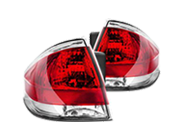
Trailer Hitches: Towing Essentials, Types, and Tips
Trailer hitches are essential accessories for anyone looking to tow trailers, campers, boats, or other heavy loads behind their vehicle. These sturdy devices provide the necessary connection between your vehicle and the trailer, enabling safe and efficient towing. In this comprehensive guide, we'll explore trailer hitches, the various types available, their benefits, and essential tips for choosing and using them.
Benefits of Trailer Hitches:
Versatility: Trailer hitches enable you to tow various types of trailers, campers, and equipment, making them versatile accessories for a wide range of activities.
Increased Cargo Space: By towing a trailer, you can expand your vehicle's cargo capacity, making it ideal for transporting bulky items, equipment, or luggage.
Recreation: Trailer hitches allow you to enjoy outdoor activities such as camping, boating, and off-roading by providing a means to transport recreational equipment.
Moving and Hauling: Trailer hitches are indispensable for moving furniture, appliances, or other large items, as they make the transportation process more efficient.
Safety: When used correctly, trailer hitches can improve towing stability and safety, reducing the risk of accidents and damage to your vehicle.
Choosing the Right Trailer Hitch:
Know Your Vehicle's Towing Capacity: Check your vehicle's owner's manual or consult the manufacturer's specifications to determine its towing capacity. Choose a trailer hitch that matches or exceeds this capacity.
Consider the Trailer Type: The type and size of the trailer you plan to tow will influence your hitch choice. Heavier loads may require a gooseneck or fifth-wheel hitch, while lighter trailers can use receiver hitches.
Select the Appropriate Class: For receiver hitches, choose the class that aligns with your towing needs. Class I and II hitches are suitable for smaller trailers, while Class III, IV, and V hitches are designed for heavier loads.
Professional Installation: Ensure that your trailer hitch is professionally installed or follow manufacturer instructions closely if installing it yourself. Proper installation is crucial for safety and performance.
Maintenance: Regularly inspect and maintain your trailer hitch, including cleaning, lubricating moving parts, and checking for wear and tear. Replace any worn components promptly to ensure safety.
Conclusion:
Trailer hitches are indispensable tools for anyone who needs to tow trailers or haul heavy loads. By understanding the different types of trailer hitches, their benefits, and the essential considerations for choosing and maintaining them, you can make informed decisions to enhance your towing experience while ensuring safety and reliability on the road. Whether you're a recreational enthusiast or require towing for work, a well-chosen and properly maintained trailer hitch is an essential companion for your vehicle.




























